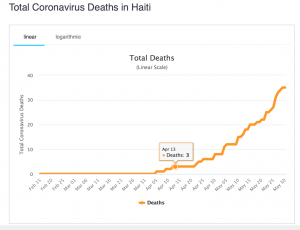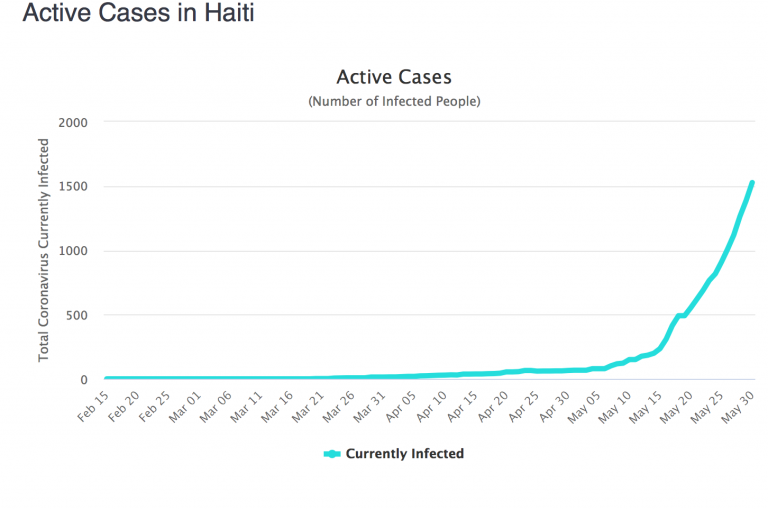As our country lifts stay-at-home guidelines and businesses, parks, and beaches reopen, the timer on the Covid-19 bomb in Haiti is in countdown mode, tick, Tick, TICK. Many in the world will not hear about the explosion, and many who do will not fully understand its devastating impact.
On paper, Haiti sounds like other countries, including the U.S. They are ill-prepared; they do not have proper medical supplies, staff, hospital beds, and the ability to test. A huge difference is the starting base. Haiti is not prepared for most medical conditions, lacking hospitals, trained medical professionals, equipment, and medicines. In Haiti, it is common for a person to die from an infection caused by a splinter due to lack of medical care or medicine. With high incidences of malnutrition, improper preventative medical care, and education, a high percentage of Haitians have compromised immune systems. There has been an attempt to inform Haitians about the virus and prevention, but meeting prevention guidelines is nearly impossible.


Overcrowded living conditions and lack of clean water create a fertile breeding ground for the virus to thrive and transmit. Most Haitians make $2.00 per day by selling wares in crowded streets in cities. There are no available restrooms or hand-washing stations. There is no way to regulate social-distancing. The majority of Haitians live day-to-day, without investments or savings accounts. There is not a government “stimulus package” available for assistance. There is a negative social stigma placed on those who carry the virus. For that reason, many Haitians, who may have access to medical care, do not seek it. Haitians are dying in their homes from viral complications, and the numbers of illnesses and deaths never get recorded. To complicate the situation further, June through November is hurricane season.
Partners in Education Haiti is not in a position to “fix” Haiti. Haitians have to fix Haiti, but they need tools to do it. PieH believes that education is one of those tools. Like most places in the world, schools in Haiti closed due to the virus. Some students continue learning by using phone apps; others do not have the same access. With guidance from the program assistant, PieH is attempting to figure out ways to assist with alternative learning methods for the Haitian students. Covid-19 presents additional challenges to our partnership, but the work continues. We will provide updates soon.





